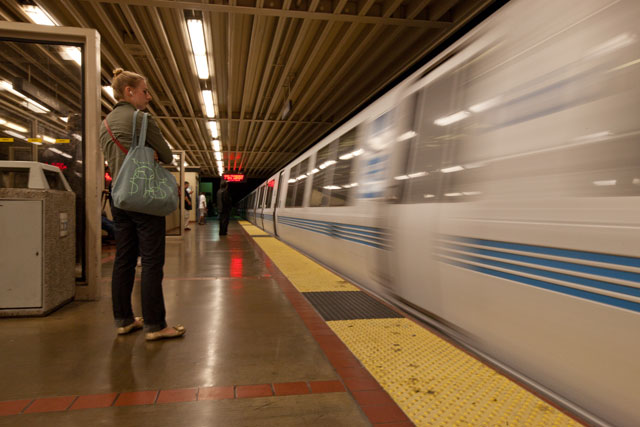
Eleven BART passengers had to be treated for medical problems in Wednesday morning's incident in the Berkeley Hills Tunnel when a parking brake malfunctioned and filled some train cars with brake dust.
The incident is the latest in a string of recent problems for the transit agency, including a systemwide computer failure last month, and a train fire in October.
BART provides an average of over 400,000 rides daily, and in November that number was up to 415,000. But there's a marked change from the very favorable view that Bay Area residents had of the system back in April, said Michael Cabanatuan of the San Francisco Chronicle.
Cabanatuan wrote last week that BART riders are losing faith in the system. He told KQED's Mina Kim they're disappointed and frustrated over BART's unpredictability.
"In some ways it's like BART can be its own worst enemy. They deliver very reliable service – often as high as 96 percent of trains on time, one of the highest rates in the country," Cabanatuan said. "But when there are times – for example, the two strikes, or the computer failure or even today's incident, where you just don't know if a train is going to show up – people start to lose faith even if it is a relatively small number of times or relatively few occurrences."
